The Armari Magnetar X64T Workstation OC Review: 128 Threads at 4.0 GHz, Sustained!
by Dr. Ian Cutress on September 9, 2020 12:00 PM EST- Posted in
- Desktop
- Systems
- AMD
- OC Systems
- ThreadRipper
- 3990X
- Armari
- Magnetar
- X64T
- Rendering
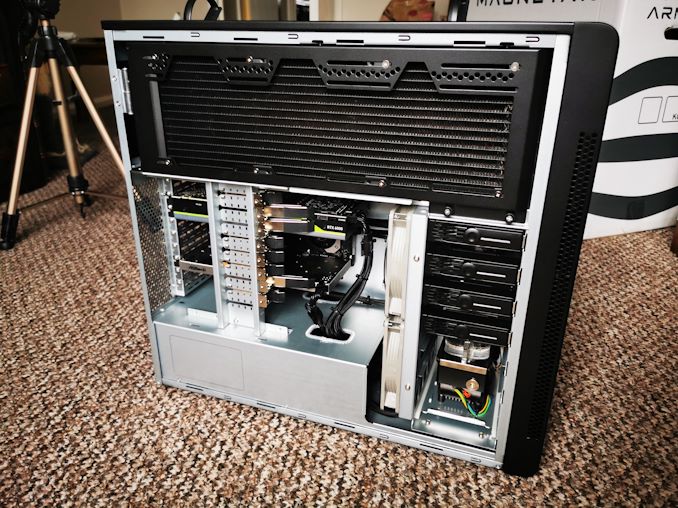
Blitzing around a race track in a fast car only ever convinces you of one thing: I need to go around the track even faster. I need a better car, I need a better engine, better brakes, or better tires. I need that special go faster juice, and I need to nail the perfect run. The world of professional computing works the same, whether it comes down to rendering, rapid prototyping, scientific compute, medical imaging, weather modelling, or something like oil and gas simulation, the more raw horsepower there is, the more can be done. So enter the new Armari Magnetar X64T – an overclocked 64-core Threadripper 3990X that holds the new SPECworkstation3 world record. We got hold of one. It’s really fast.
Playing with Performance
AMD’s Threadripper 3990X is one of those crazy processors. It comes at you with some of the best of any processor statistics: it has 64 cores and 128 threads, it has 256 MB of L3 cache, it has a TDP of 280 W, which allows for a 2.9 GHz base frequency up to a 4.3 GHz turbo. It is overclockable, and so with the right system those frequencies can go even higher. With the best binned 7nm chiplets, paired with quad-channel DDR4-3200 memory, for multithreaded workloads it is one of the ultimate powerhouses anyone can build in a single socket with a socketable processor.
In our initial review of the Threadripper 3990X, it blitzed any software that could take advantage of all those threads – the nearest competitors were the 32-core Threadrippers, or Intel’s 28-core Xeon-W processors. We even put it up against two of Intel’s $10000 28-core Xeons, and it won pretty much everything by a large margin.
So what happens when we overclock it? There are those that want more, and not just those overclocking for fun – workstation customers, like animation studios, are always looking for ways in which they can rapidly render frames for upcoming projects. If a cooling system can be built to withstand it, and the power is available, then there’s always scope to get more out of the hardware that comes from the big players. This is what the Armari Magnetar X64T Workstation is designed to do – get more.
To that end, today AMD and SPEC is announcing that the Magnetar X64T workstation, a system that you can buy, will off-the-shelf give the best performance in SPECworkstation3 ever seen.
The Magnetar X64T: Performance Reimagined
The key highlight from this review, should you not read any further, is that this system is built to blitz workloads. The Threadripper 3990X is usually fast enough in its own right, but Armari have gone above and beyond. The goal of this system is to be an off-the-shelf powerhouse that requires very little setup from its customers.
Armari, perhaps a lesser well known system integrator, is a company that has in recent years focused on building systems for 3D animation, video editing, and scientific research. With over 20 years of experience, Armari’s hardware has gone into high performance computing solutions and clusters that have featured in the TOP500 lists, as well as rendering server farms for the top animation, VFX, and CGI studios in Soho, London.
These are clients who want the best performance, and Armari positions itself not so much as a boutique system builder, but something between the big OEMs (like Dell/HP) and the main retailers to offer custom solutions by leveraging its network of cooling and hardware contacts around the world. This enables the company to build custom chassis, obtain optimized memory, order power supplies with custom connector configurations, and ensure consistency from batch-to-batch when ordering from its partners. In speaking to Armari’s Technical Director Dan Goldsmith, he mentioned that working with partner companies for so long has enabled them to get access to rapid prototyping and component consistency with continual feedback with partners such as EKWB, ASRock, Tyan, and many other ODM companies that Armari leverages on a regular basis.
The Magnetar X64T, I was told, leverages the strong relationship Armari has with AMD. The Opteron was a popular range a decade ago, and that partnership has been maintained through today. The goal of the Magnetar project was to create a system that offers the best that Threadripper has to offer while still enabling the under-the-desk workstation platform. This project has been slightly delayed due to COVID, and AMD now has Threadripper Pro, but those processors are not overclockable – for those that want raw performance, AMD and Armari believe they are on a winner.
The key to the system is in how Armari is cooling the processor, and the choice of components. The Magnetar X64T features a custom water cooling loop, which is perhaps not anything new in its own right, however the company has created a component chain to ensure consistency in its design, as well as using some of the most powerful options available.
The water block is probably the best place to start, because this is a completely custom-for-Armari design built in partnership with EK Water Blocks. This block is specifically built for this one motherboard, the ASRock TRX40 Taichi, and applies cooling to both the processor and the power delivery. The block works in conjunction with the highest-quality thermal paste pads on the market, to ensure a flat connection with the water block. As it also covers the power delivery, Armari worked with ASRock to enable a consistent z-height of all the power delivery components, something that can vary during manufacturing, and maintain that consistency on a batch-by-batch basis. Pair this up with Armari’s custom FWL liquid cooling pump, reservoir, tubing, 3x140mm radiator, and fan combinations (many of which are custom from their respective ODMs), and we have a cooling capacity in excess of 700 W. The coolant is a special long-life coolant designed for 24/7 over three years, and the standard warranty comes with service during those three years, including collection and return, at no extra cost.
Now, the ASRock TRX40 Taichi isn’t the top Threadripper motherboard on the market, and Armari fully admits that, however it points out that the best motherboard available costs twice as much. In working with ASRock, they were able to co-ordinate what was needed within the discrete motherboard component lists as well as enable a custom BIOS implementation for additional control. One of the tradeoffs I was told about is that a cheaper motherboard might mean slightly cheaper components, however Armari says that their cooling system and setup were co-operatively tuned to meet its customers’ demands.
With this cooling arrangement, Armari have fired up the overclock. In our initial review of the Threadripper 3990X, we were observing ~3450 MHz during our sustained running with the CPU reaching its full 280 W. For the Armari Magnetar X64T, we have an all-core frequency from 3950-4100 MHz, depending on the workload. Users might scoff at the +400-550 MHz lift, but bearing in mind this is across all of the 64 cores simultaneously, and the cooling is built such that this frequency is sustained for renders or simulations that might take days. Further details of frequency and power later in the review.
While having the overclocked CPU is great, the Magnetar X64T system we were delivered also had memory, graphics, and storage.
| Armari Magnetar X64T as shipped (X64T-RD1600G3-FWL) |
|
| Processor | AMD Ryzen Threadripper 3990X Overclocked to ~4.0 GHz All-Core Turbo |
| Cooling | Custom Armari FWLv2 Liquid Cooling Loop Custom CPU+VRM Monoblock 420x45mm EK Coolsense Radiator 3 x EK-Vardar 140ER EVO 140mm fans High Performance Pump Clear Coolant, Designed for 3yr operation |
| Graphics | PNY NVIDIA Quadro RTX 6000 24 GB |
| Motherboard | ASRock TRX40 Taichi |
| Memory | 256 GB of DDR4-3200 |
| Power Supply | 1600W 80PLUS Gold 93%, rated to 50ºC 0% fan under 40% load 9x PCIe connections |
| Storage | ASRock Hyper Quad M.2 PCIe 4.0 x16 add-in card 1 x Corsair MP600 PCIe 4.0 x4 1 TB Boot Drive 2 x Corsair MP600 PCIe 4.0 x4 1TB Striped Array |
| Networking | Realtek RTL8125 2.5 GbE (motherboard) Intel I211-AT 1 GbE (motherboard) Intel AX201 Wi-Fi 6 module (motherboard) |
| Audio | Onboard Realtek ALC1220 + ALC4050H |
| Fans | 3 x EK 140mm for radiator 2 x Noctua 140mm for internal airflow 1 x SanAce 80mm low noise for DRAM |
| Price as Built | £10790 + tax (~$14200 + tax) Special launch price for September |
| UK Warranty | 1 Year RTB 3 Year Parts+Labor One service/coolant replacement, inc collection/pickup Loaner systems available if bigger issues occur |
The system as shipped came with an PNY NVIDIA RTX6000 graphics card, which is essentially an RTX 2080 Ti on steroids with 24 GiB of GDDR6, and the system can be configured with two of them. As Threadripper is not an ECC-qualified platform, the X64T comes with the peak configuration supported, 256 GB, but with custom SPD profiles to run up to DDR4-3600. Unfortunately due to how quickly this system was rebuilt for this review, the system I was sent was using DDR4-3200 at CL20, as some of the original memory was accidentally splashed with coolant, and Armari wanted to ensure I wouldn’t have any issues with the system.
Storage comes in two forms, both of which are PCIe 4.0. As shipped, we were specified with a boot drive to the tune of a Corsair MP600 1 TB PCIe 4.0 x4 drive. Another two of these drives were provided inside an ASRock Hyper M.2 PCIe 4.0 card, plugged into one of the PCIe 4.0 slots. Armari says that as newer and bigger PCIe 4.0 drives come to market beyond the Phison E16 solutions, this should expand to higher capacity drives or faster drives as required.
The power supply is a fully custom 1600W 80PLUS Gold unit, rated to run at 50 ºC with 93% efficiency. It has a custom fan profile directly from the OEM, and is set to only stir up the fans if the power required goes above 40% (640 W). The fully modular PSU has nine 8-pin connections and five 6-pin connections, providing 14 total, should any customer want to go above and beyond. The PSU on its own has a 10-year warranty.
The motherboard has a 2.5 GbE wired network port and a 1 GbE wired network port, and Armari does offer a 10G upgrade (space permitting based on the PCIe slots). Wi-Fi 6 support comes as standard, as does the ALC1220 audio configuration.
The chassis is the last custom part to discuss, with the system featuring the Magnetar naming on the front with the Armari logo. The chassis is big, but quite standard for a high-end workstation platform: 53cm x 22cm x 57cm (20.9-in x 8.7-in x 22.4-in), with a typical single GPU weight of 18 kg (39.7 lbs).
The chassis comes with handles on top that fold away, making the system easy to move around as required. I love these.
Inside there is lots of ‘space’ for directed airflow. The pump and reservoir is found in the bottom of the case, underneath the standard drive-bays, while the 3x140mm double thick radiator is at the top built into the side of the chassis. This is a special hinged mount, which makes the side panel easy to remove and the cooling apparatus easy to inspect.
There is a PCIe retention bracket for any add-in card installed, and in the base of the chassis is the power supply, hidden away. The insides weren’t necessarily built to look aesthetically pleasing, however the system as provided by Armari has a nice clean look.
Due to a couple of issues with arranging this system for review, I was told that normally Armari adds in some custom sealant to help with the liquid cooling loop, however as it requires 24 hours to set, they weren’t able to in this instance. The liquid cooling loop is pre-tested for every system they build at over 1 bar of pressure, along with full stability testing and thermal testing before shipping. For any reason if a system needs to be returned for warranty, Armari can supply a loaner system if required. As mentioned above, the standard warranty includes one full service and inspection, and the coolant can be replaced in order to give the customer another 3 years of ‘hassle free’ operation.
The News Today: World Records
Today AMD and Armari are announcing that the new Magnetar X64T has set a new world record in the SPECworkstation 3 benchmark. The system that achieved this test is, by and large, the system I am testing today (it was stripped down and rebuilt with an updated water block). For the customers that Armari typically services this one of the primary benchmarks they care about, and so getting a new world record for a commercially available system should put Armari’s offerings high on their list.
Our testing, as shown over the next few pages, is similarly impressive. We already saw that the Threadripper 3990X with no overclock was a formidable beast in almost every one of our rendering and compute workloads. The only real comparison point we have to compare against is our W-3175X workstation that was provided when we reviewed that system.
The Magnetar X64T-RD1600G3 FWL (the full name) system in our testing is ~£10790 ($14200) excluding tax . This includes a Windows 10 Professional 64-bit license, and Armari’s 3 year premium workstation warranty, with 1-year on site and 2/3rd year parts and labor, along with a loaner system for the duration of any repairs.
Read over the next few pages for our testing on Performance and Power.


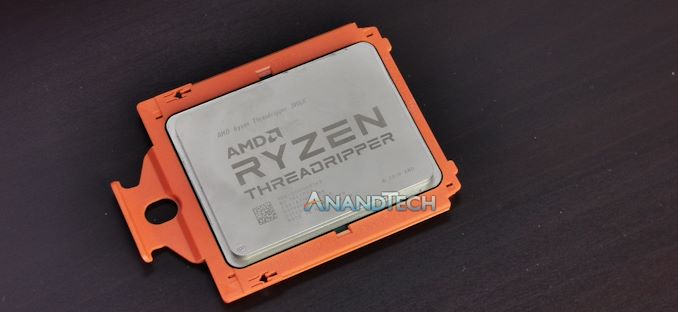
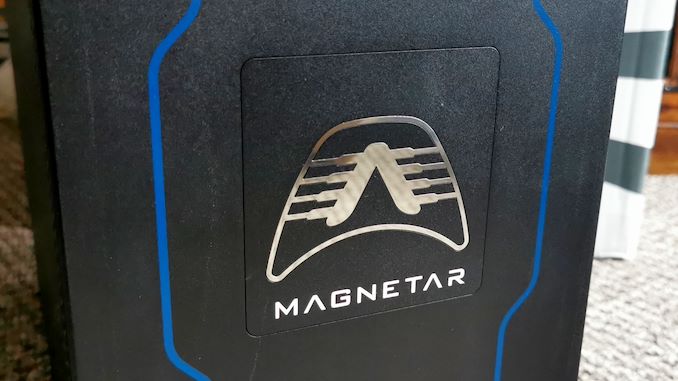
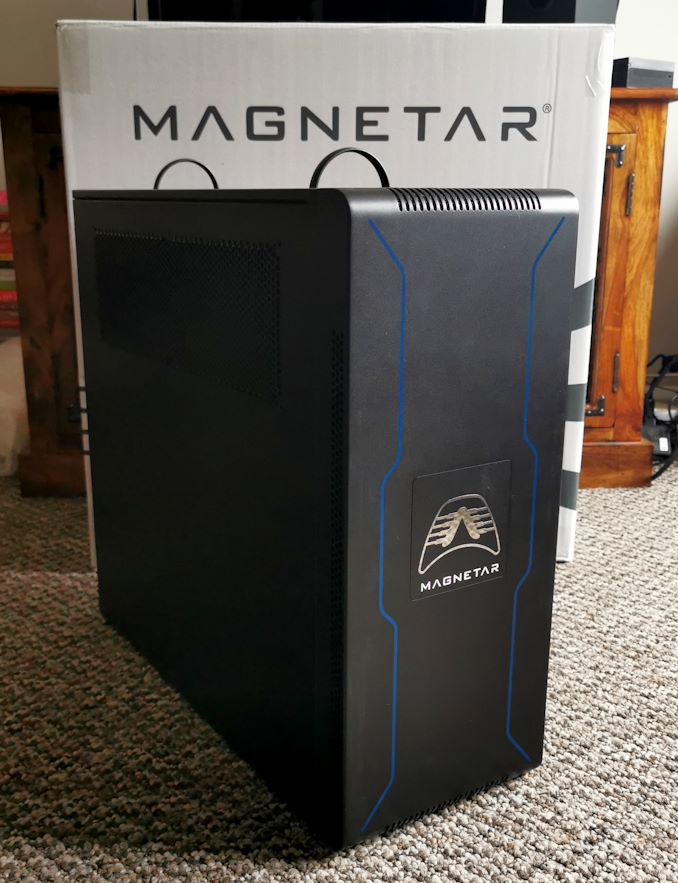
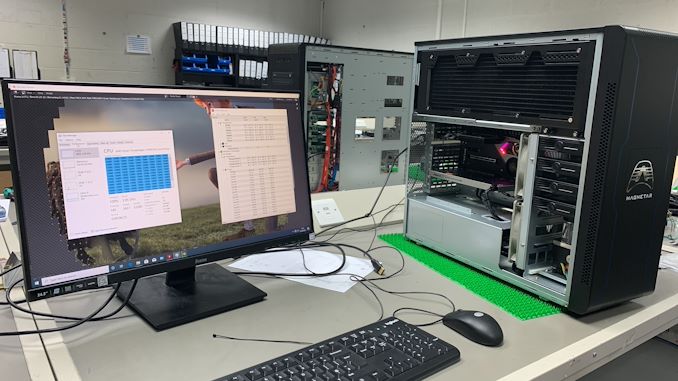
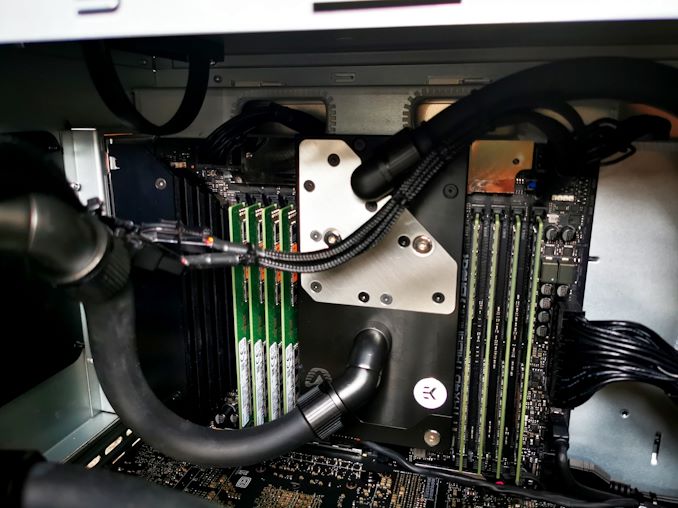
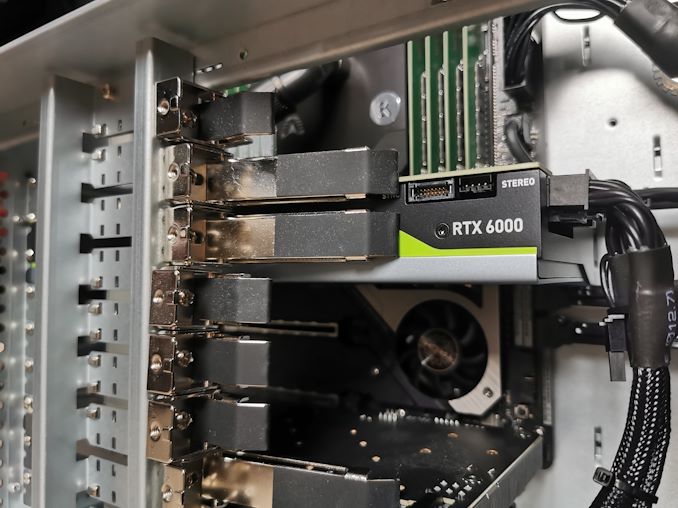
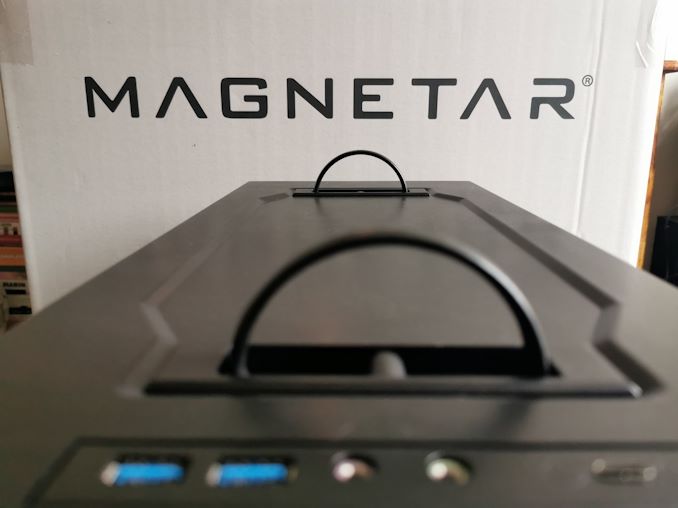
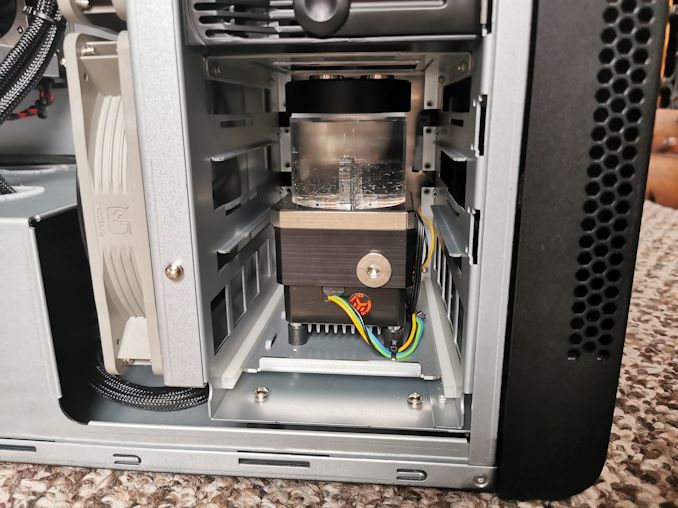
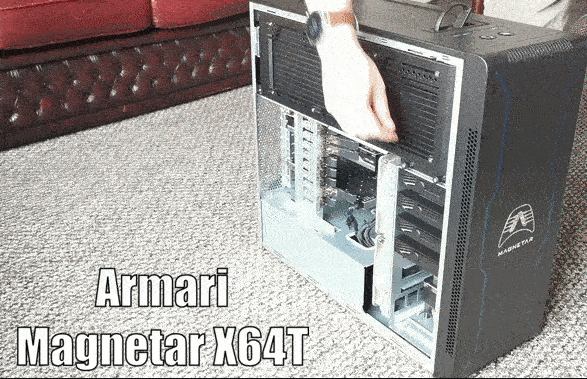








96 Comments
View All Comments
MrVibrato - Friday, September 11, 2020 - link
No shit sherlock! Wanna mate?Spunjji - Friday, September 11, 2020 - link
Are you being paid to leave multiple jackass comments or is it just a hobby?MrVibrato - Friday, September 11, 2020 - link
Both!timecop1818 - Wednesday, September 9, 2020 - link
Thought it was gonna be some ARM workstation based on the name, stopped reading after first few paragraphs.what sorta business would be buying a stupid overclocked amd "workstation", these things need to be stable, not some bullshit kiddie water cooled omg l33t crap lol. oh wait, it's amd, stable is already not gonna happen OC or not.
Ian Cutress - Wednesday, September 9, 2020 - link
High demand from UK VFX industry.RSAUser - Thursday, September 10, 2020 - link
Interesting that it is stable then...You need to go and look up what overclocking actually is.
Spunjji - Friday, September 11, 2020 - link
You could at least read the article and a couple of other comments before you comment, timecrap.But no. Make a bunch of assumptions, chuck in some fanboy bullshit for good measure and high-five yourself on the way out. What a dick.
Spunjji - Friday, September 11, 2020 - link
Relevant section:"On stability, throughout all of our testing, there was nothing to mention - there wasn't a single hint of instability. On speaking with Armari, the company said that this is down to AMD's own internal DVFS when implementing a high level PBO-based overclock: I was told that because this system was built from the ground up to accommodate this power, along with the custom tweaks, and the fact that AMD's voltage and frequency tracking metrics always ensured a stable system (as long as the temperature and BIOS is managed), then they can build 10, 20, or 50 systems in a row and not experience any issues."
realbabilu - Wednesday, September 9, 2020 - link
Just raise a question : how about running clustered ryzen 3900x against this oneeonsim - Thursday, September 10, 2020 - link
It would be useful to see some bioinformatic style sequencing benchmarks in the science section. A very common usecase in life sciences is to take fastq sequence data for an individual align it to a reference genome using BWA MEM, and then identify variant regions using software like freebayes, GATK or BCFtools. Or alternatively take raw sequence data and de novo assemble that data into a new genome using software like CANU. For reasonable sized research projects these sorts of jobs these sorts of jobs can take 10's-100's of thousands of compute hours. For some of the large collaborations they can take millions of CPU hours, and petabytes of this data is getting generated during the course of a year. In certain cases like cancer-care or infectious diseases these processes can be time critical, and thus there can be significant benefits to using a machine that can trim a few percentage points off. Finally a lot of these jobs scale close to linearly with core count. Happy to discuss how a realist test case could be set up.